Draft Digital Personal Data Protection Rules 2025 published for public consultation.
Blog
Top Stories
Draft Digital Personal Data Protection Rules 2025 published for public consultation.
Feedback/comments may be submitted via the MyGov portal at the following link: https://innovateindia.mygov.in/dpdp-rules-2025 and the last date for submission is 18th February 2025.
Copy of Notification and explanatory note attached.
Invitation for Bids – Sri Lanka State Trading (General) Corporation Ltd.
Invitation for Bids – Sri Lanka State Trading (General) Corporation Ltd.
I wish to inform you that the Sri Lanka State Trading (General) Corporation Ltd., has invited sealed bids from eligible bidders for supply of 30,000 (MT) of Non-Iodized Salt to Sri Lanka.
Closing date for the above IFB is on or before 03rd January 2025 at 12:00 p.m. (Sri Lanka local time GMT+5:30).
The bidding document can be downloaded from the website https://www.stc.lk/salt2024/ and press notice is attached herewith.
Thank you.
With warm regards,
Shirani Ariyarathne
Actg. Consul General
Minister (Commercial)
Consulate General of Sri Lanka
34, Homi Mody Street, Fort
Mumbai 400001
Tel: (+ 91 22 )22045861/22048303
Fax: (+ 91 22) 22876132
E -mail: slcg.mumbai@mfa.gov.lk
Lothal to become Global Hub for Maritime Heritage with National Maritime Heritage Complex”: Sarbananda Sonowal
Lothal to become Global Hub for Maritime Heritage with National Maritime Heritage Complex”: Sarbananda Sonowal
The Union Minister of Ports, Shipping and Waterways, Shri Sarbananda Sonowal along with the Minister of Labour & Employment and Youth Affairs, Dr Mansukh Mandaviya and the Chief Minister of Gujarat, Shri Bhupendra Patel made a joint review to assess the progress of the National Maritime Heritage Complex (NMHC) in Lothal, Gujarat, on Saturday.
The Ministry of Ports, Shipping, and Waterways, under Sagarmala Programme is developing the National Maritime Heritage Complex, a world-class facility which will showcase India’s maritime heritage from ancient to modern times, adopting an innovative “edutainment” approach using cutting-edge technology to spread awareness and attract international tourists.
Lothal, a prominent city of the ancient Indus Valley Civilisation dating back to 2400 BCE, holds historical significance for its advanced dockyard, thriving trade, and renowned bead-making industry. Artifacts such as seals, tools, and pottery unearthed by archaeologists reveal a rich cultural and economic history, making it a pivotal site of the Harappan civilisation.
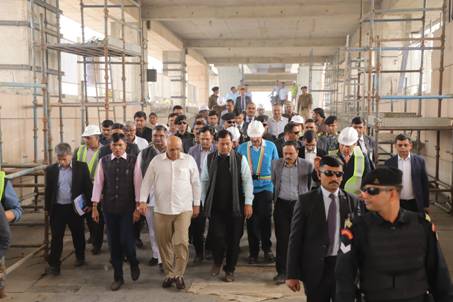
The Ministers toured key project landmarks, including INS Nishank, the Lothal Jetty Walkway, and the Museum Block. They also interacted with onsite workers to understand their challenges being faced and progress made so far. Shri Sonowal expressed satisfaction with the significant milestones achieved in civil infrastructure development, noting that the project is advancing on schedule.
Boosting Local Involvement and National Heritage
A key focus of the review was the integration of local communities into the project’s development. Speaking on the occasion, Shri Sarbananda Sonowal said, “We are committed to ensuring that the NMHC is completed on time and to the highest standards. This project will boost tourism, provide a platform for maritime education, and foster collaboration between India’s maritime community and the global industry. It is a crucial step toward making India a leading maritime nation.”
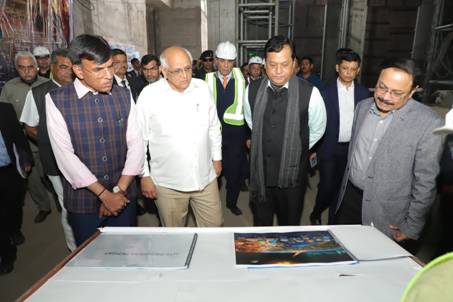
Highlighting the socio-economic impact of the project, Shri Sarbananda Sonowal said, “This project will create employment, foster skill development, and empower the youth of Gujarat. The NMHC is a project of national importance, offering tremendous opportunities for growth and learning in the maritime sector. The visionary leadership of PM Shri Narendra Modi ji has ensured that India remains on course towards all round development of the country and that the people reap the fruit of India’s developmental story.”
The NMHC is poised to become a cornerstone of India’s maritime legacy, harmonising cultural and historical significance with economic and educational development. With 65 per cent of Phase 1A already completed, the project is on track to meet its timeline and establish itself as a global beacon of maritime heritage.
“Under the dynamic leadership of Prime Minister Shri Narendra Modi ji, the government is committed to ensuring the National Maritime Heritage Complex (NMHC) is completed on time and to the highest standards,” said Sarbananda Sonowal. “The project will boost tourism, provide a platform for maritime education, and foster greater collaboration between India’s maritime community and the global maritime industry. This is a crucial step toward realising the vision of making India a leading maritime nation – boosting the effort led by Shri Modi ji towards transforming India into becoming an Atmanirbhar Bharat by 2047,” the Union Minister added.
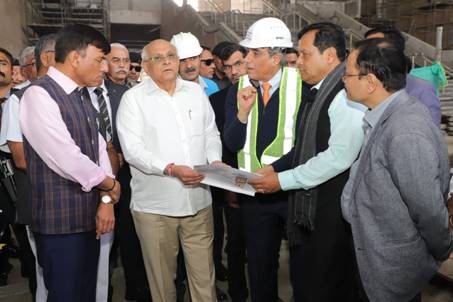
The Government of India remains steadfast in its commitment to the success of the NMHC, which is expected to boost Gujarat’s tourism economy and solidify India’s position as a maritime leader on the world stage.
The National Maritime Heritage Complex (NMHC) in Lothal, Gujarat, is set to become an international tourist hotspot, celebrating India’s rich maritime legacy. Spanning from ancient civilisations to modern times, the complex will use a unique blend of education and entertainment, incorporating the latest technology to immerse visitors in the country’s maritime history.
Designed as a world-class destination under the Sagarmala Programme, NMHC aims to showcase India’s naval achievements and cultural connections through interactive exhibits, state-of-the-art displays, and engaging storytelling. This initiative is poised to not only preserve India’s maritime heritage but also to attract global tourists and foster a deeper appreciation of its historical significance.
Senior officials of the Ministry of Ports, Shipping, and Waterways, the Ministry of Defence (Navy and Coast Guard), the Government of Gujarat, renowned architect Hafeez Contractor, and Tata Projects Ltd have participated in the review.
Maharashtra notifies High Court of Bombay Rules for Video Conferencing for Courts 2022
Maharashtra notifies “High Court of Bombay Rules for Video Conferencing for Courts 2022
Maharashtra notifies “High Court of Bombay Rules for Video Conferencing for Courts 2022”
Copy of notification attached.
High Court of Bombay Rules for Video Conferencing for Courts 2022
High Court of Bombay Rules for Video Conferencing for Courts 2022.
High Court of Bombay Rules for Video Conferencing for Courts 2022.
Copy of notified Rules attached
Bombay Chamber’s 15th AgriCorp focuses on FPOs as pathways to link farmers to the value chain
Bombay Chamber’s 15th AgriCorp focuses on FPOs as pathways to link farmers to the value chain
Pune:
Bombay Chamber recently organised its 15th AgriCorp Conference themed ‘Enriching FPOs’ in Pune. The event was held over two days and was held in partnership with KISAN and was supported by State Bank of India, Axis Bank, Rallis India, MTS S.r.l, IDBI Bank, Nichem Solutions, Union Bank of India, KETO Pharma, AGRIBAZAAR and NABARD.

Dr. P K Chakrabarty, PhD, FNAAS, Chief Scientific Advisor, Dhanuka Agritech and former Member – ASRB, DARE, MoA & FW, ADG (PP&B), ICAR and Krishi Bhawan was the guest of honor. In his presentation, Dr Chakrabarty said that Agricultural prosperity was a game changer to national prosperity. While comparing India and China, he said that India’s inherent rich geographical advantages support its potential to become the global food and manufacturing hub. However, he pointed out that despite having 30% more arable land and 67% more rainfall, India’s agricultural GDP is only about 1/3rd of that of China. Nonetheless, there is a considerable disparity between the two countries in the usage of fertilisers and pesticides, two crucial components for optimum production and protection.
He listed some of the challenges that India faces and which need intervention both form government and the private sector. The challenges include less expenditure on research in India vs developed nations; crop losses which threaten our food and nutritional security; illicit/counterfeit fertiliser products; regulatory challenges; Pesticide Management Bill; lack of awareness regarding spread of technology. Dr Chakrabarty also questioned whether the Indian cropping system is ready to embrace organic cultivation without compromising on food security.
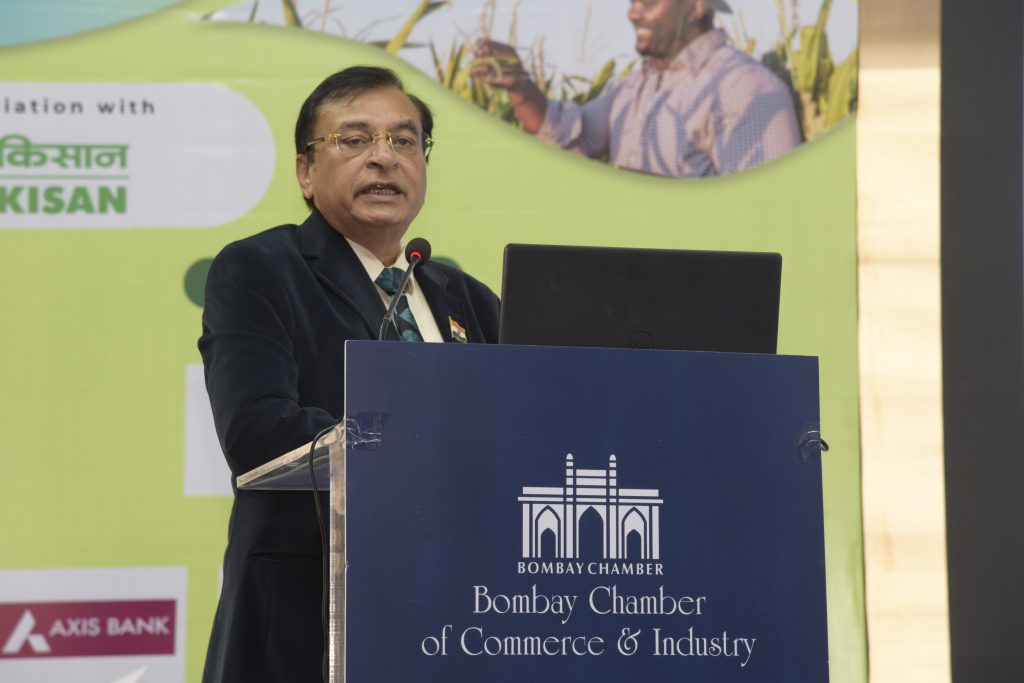
The first day saw several knowledge sessions including a panel discussion on Current & Upcoming Govt Schemes for FPOs moderated by Dr. Sudhir Kumar Goel, IAS, Former Additional Chief Secretary (Agriculture and Marketing), Government of Maharashtra & Mentor, Agriculture & Food Processing Committee, Bombay Chamber. Speakers included Shri Uday Deshmukh, Additional Project Director, SMART – Government of Maharashtra; Dr Amol M. Yadav, Additional Project Director, MAGNET and Dr Prashant Waghmare, Deputy General Manager & Regional Head Mumbai, APEDA.
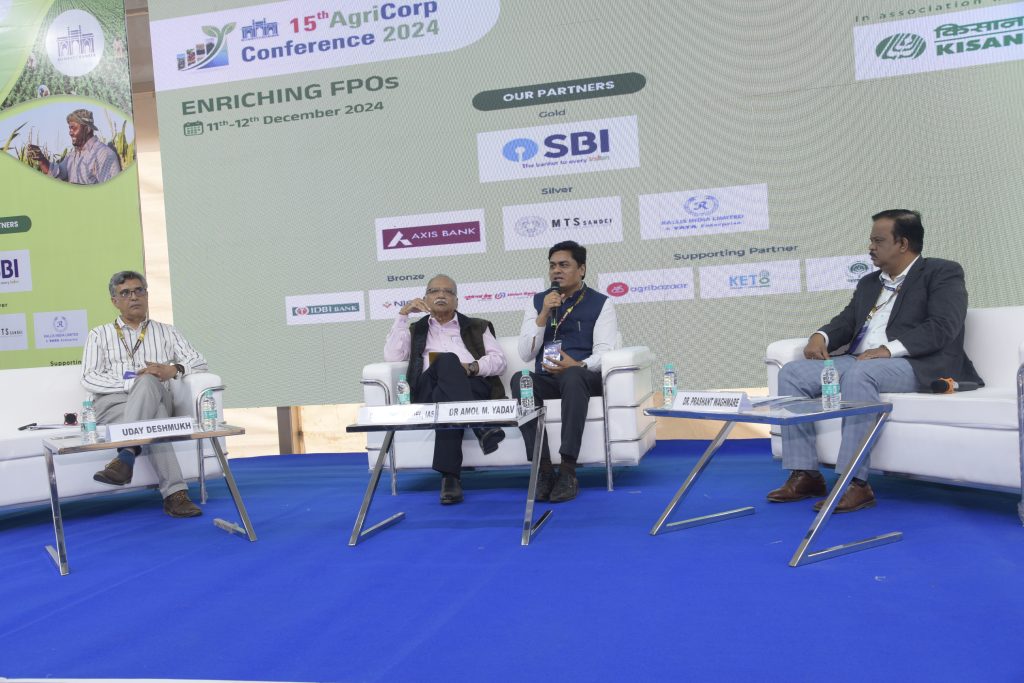
The second panel discussion on the same day was on FPO Start-Ups (Success Stories). The session was moderated by Prasad More, Product Head Organic And Lead Auditor, Cert ID India and the panelists were Vikram Deshmukh, Director, Rui Farmer Produce Company; Jaysing P. Hulawle, Production Head, Pawna Sanskruti Farmers Producer Company and Mithilesh Desai, Managing Director, Jackfruitking Agro Producer Company.
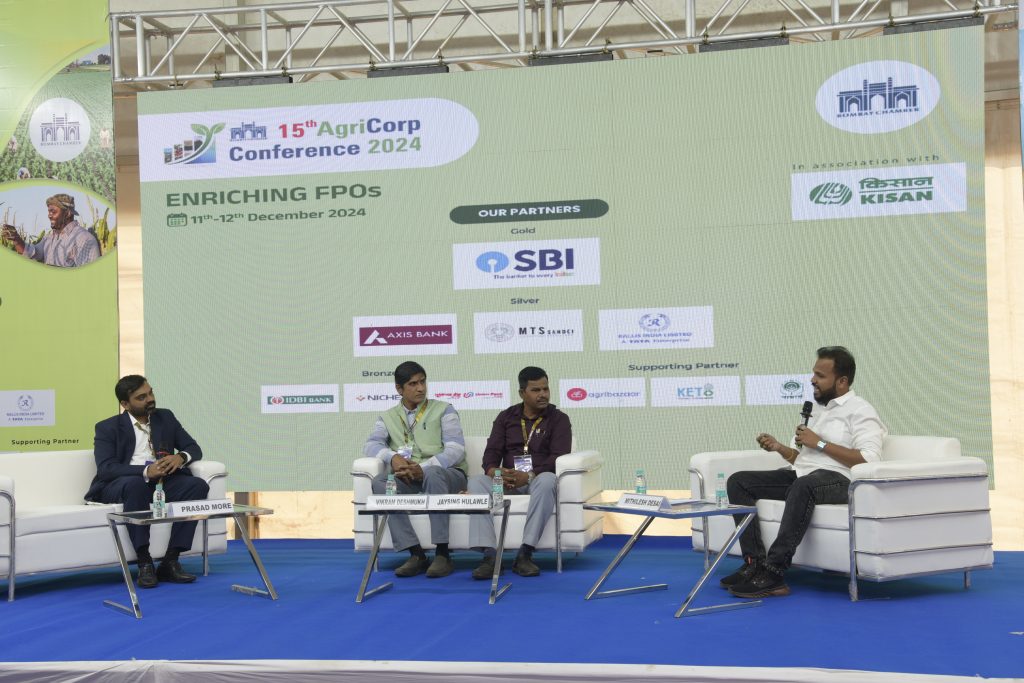
The second day started with a session on Digitalisation in Agriculture (Climate Stack, Agri Stack, Mandi Stack). The moderator was Rajesh Urkude, Digital Food Initiative – Operations, Tata Consultancy Services and the speakers were Dr Rahul Mirchandani, Managing Director, Aries Agro; Sachin Nandwana, Co-Founder and Director, BigHaat Agro and Saurabh Khanna, MD & CEO, NeRL.
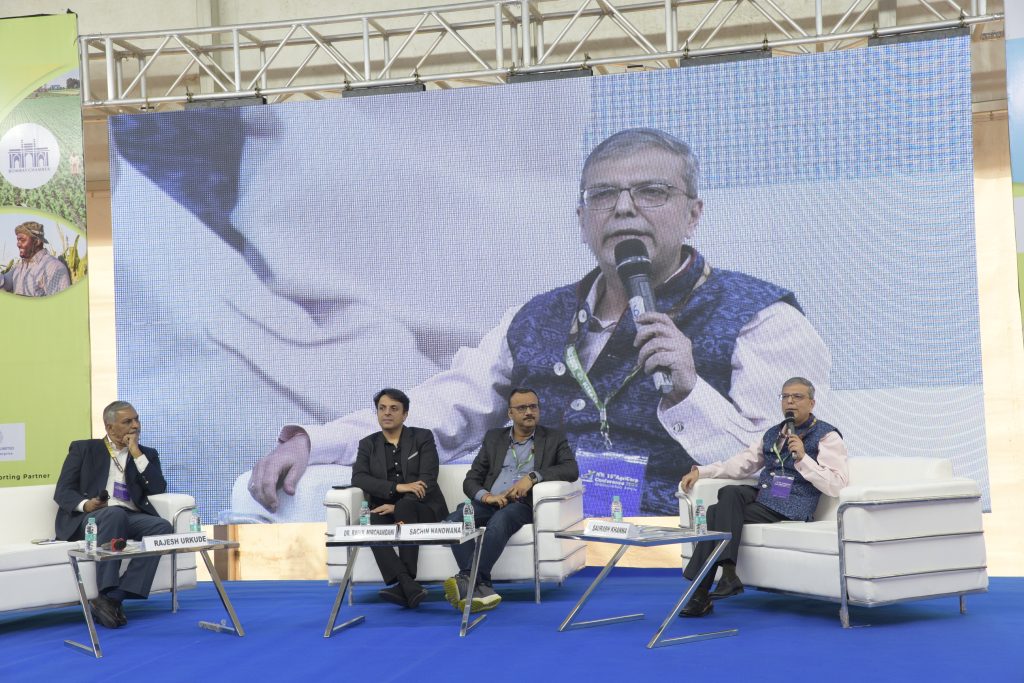
Another session on Export Success Stories was moderated by Azhar Tambuwala, Executive Director Sahyadri Farmers Post Harvest Care (Sahyadri Farms) & Expert Committee Member, Agriculture & Food Processing Committee, Bombay Chamber. The speakers included Anant More, President, Fratelli Fruits Farmer Producer Company; Narendra Patil, Vice-President, Soex Flora and Kapil Sawant, Senior Manager, Farmonaut.
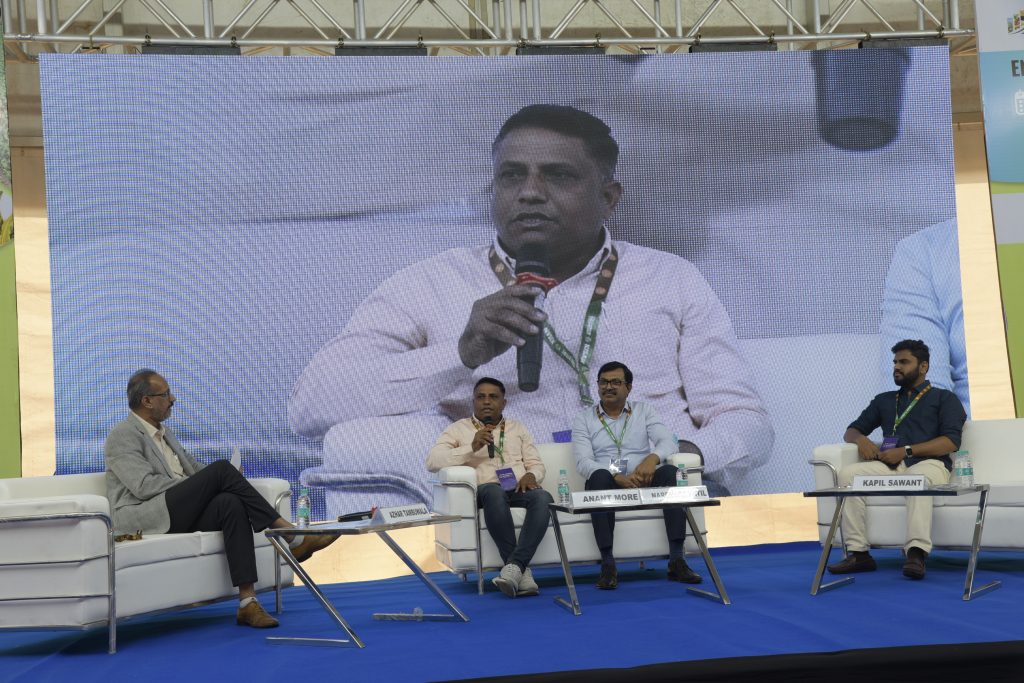
This was followed by a presentation on MTS Sandei, Tomato Harvesters for Industrial Tomatoes by Matteo Migliorini, Export Manager, MTS S.r.l., Italy.
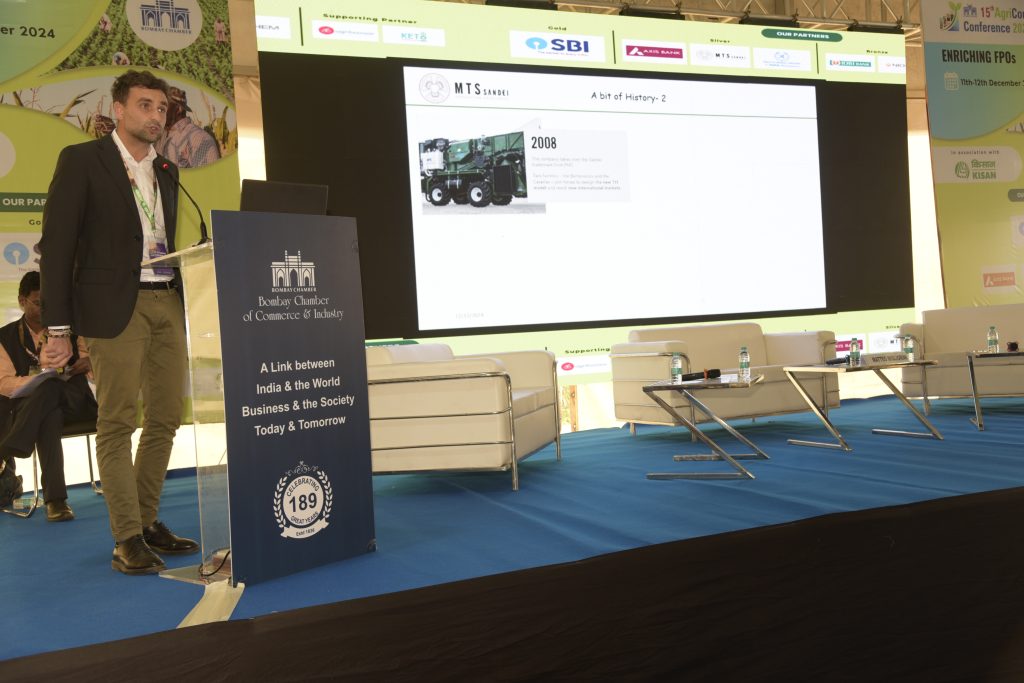
The session on Understanding Quality Control under Fresh Produce was moderated by Rajesh Sinha, Angel Investor, Consultant & Expert Committee Member, Agriculture & Food Processing Committee, Bombay Chamber. The speakers included Smita Murty, India Representative for FSSC; Anupama Patil, Assistant Commissioner of Food, Food and Drug’s Administration (FDA) Maharashtra and Dr Chun Mei Chang, COO, Envirocare Labs.
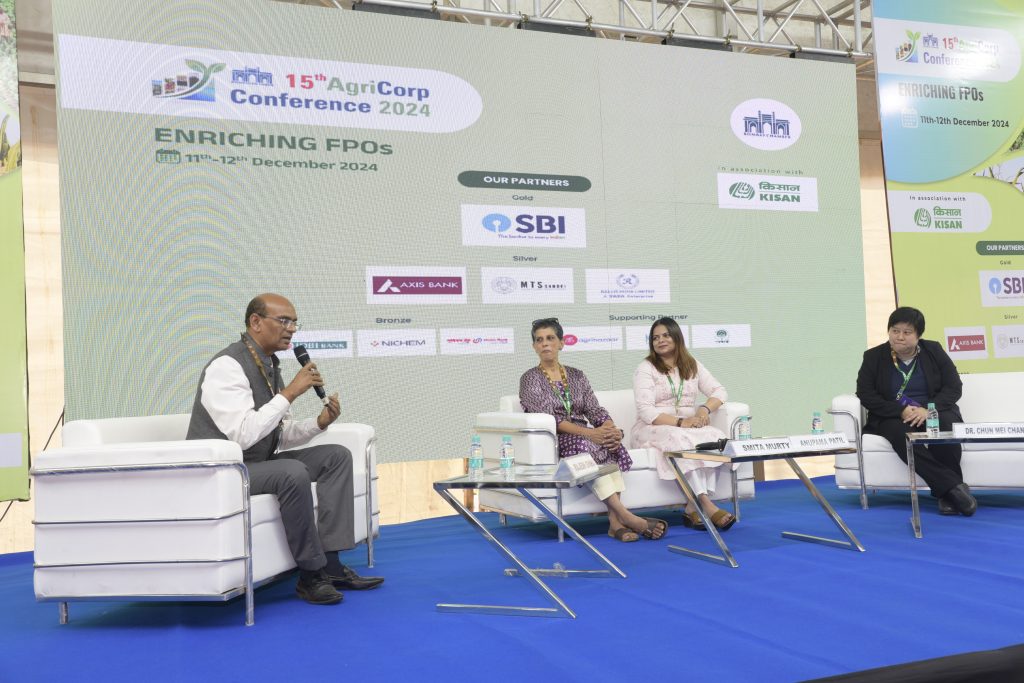
The final session of AgriCorp was on Finance (PSU, Banks, NBFCs). The moderator was Dr Sudhir Kumar Goel, IAS, Former Additional Chief Secretary (Agriculture and Marketing), Government of Maharashtra & Mentor, Agriculture & Food Processing Committee, Bombay Chamber and the speakers included Yogendra Shelkey, DGM – Agri Business Unit, SBI; Saleem Kamaal, Head, Bharat Enterprises, Axis Bank; Ghazi Islam, GM, IDBI Bank and Dr Pradeep Parate, GM, NABARD, Pune.
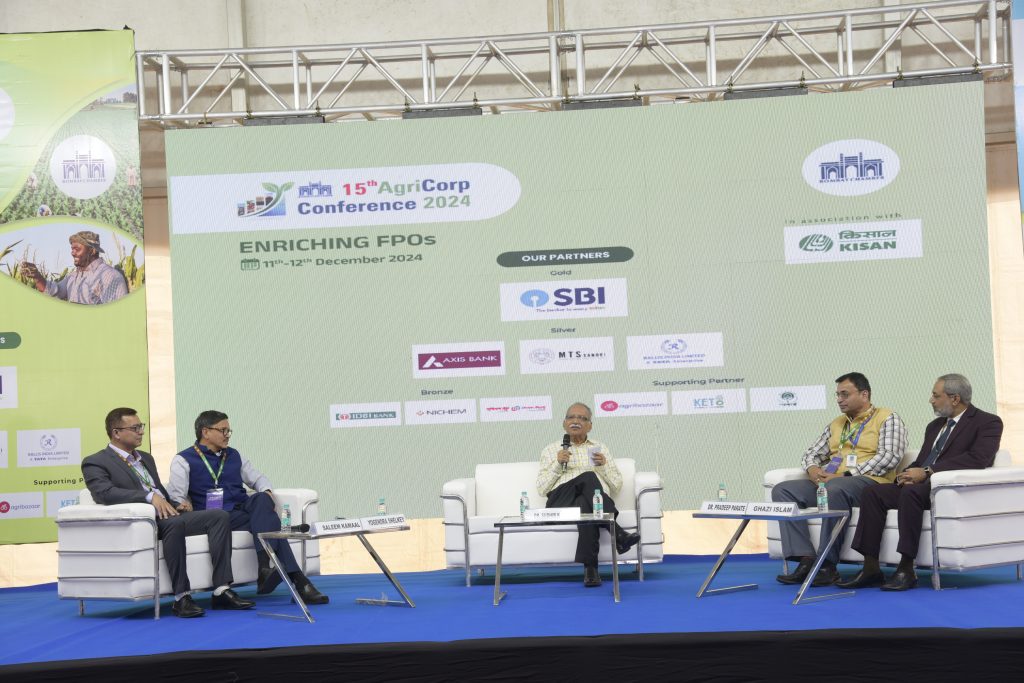
In the private sector, the rise of the gig economy has led to an increase in precarious employment arrangements – Supreme court
In the private sector, the rise of the gig economy has led to an increase in precarious employment arrangements – Supreme court
In the private sector, the rise of the gig economy has led to an increase in precarious employment arrangements, often characterized by lack of benefits, job security, and fair treatment. Such practices have been criticized for exploiting workers and undermining labour standards.
Copy of judgement attached.
No justifiable reason to continue the criminal proceedings if exonerated in disciplinary proceedings – Delhi HC
No justifiable reason to continue the criminal proceedings if exonerated in disciplinary proceedings – Delhi HC
If an accused is found innocent in disciplinary proceedings and the same charges are levelled in the criminal case, then there is no justifiable reason to continue the criminal proceedings.
Copy of judgement attached.
Employee cannot remain absent from service merely because his VRS application is pending – Supreme court
Employee cannot remain absent from service merely because his VRS application is pending – Supreme court
Employee cannot remain absent from service merely because his Voluntary Retirement Service (“VRS”) application is pending.
Copy of judgement attached
No refund of court fees when matter is settled by Mediation – Supreme court
No refund of court fees when matter is settled by Mediation – Supreme court
No refund of court fees when matter is settled by Mediation. Refund permissible only if settlement is before Lok Adalat.
Copy of judgement attached.


It is a long established fact that a reader will be distracted by the readable content of a page when lookin







